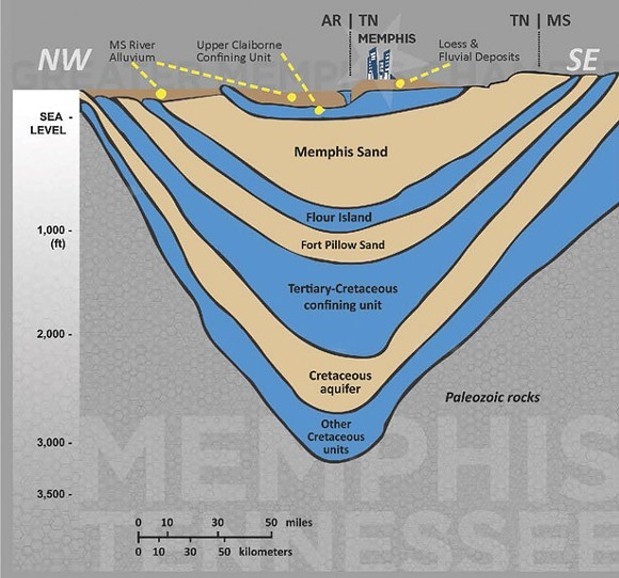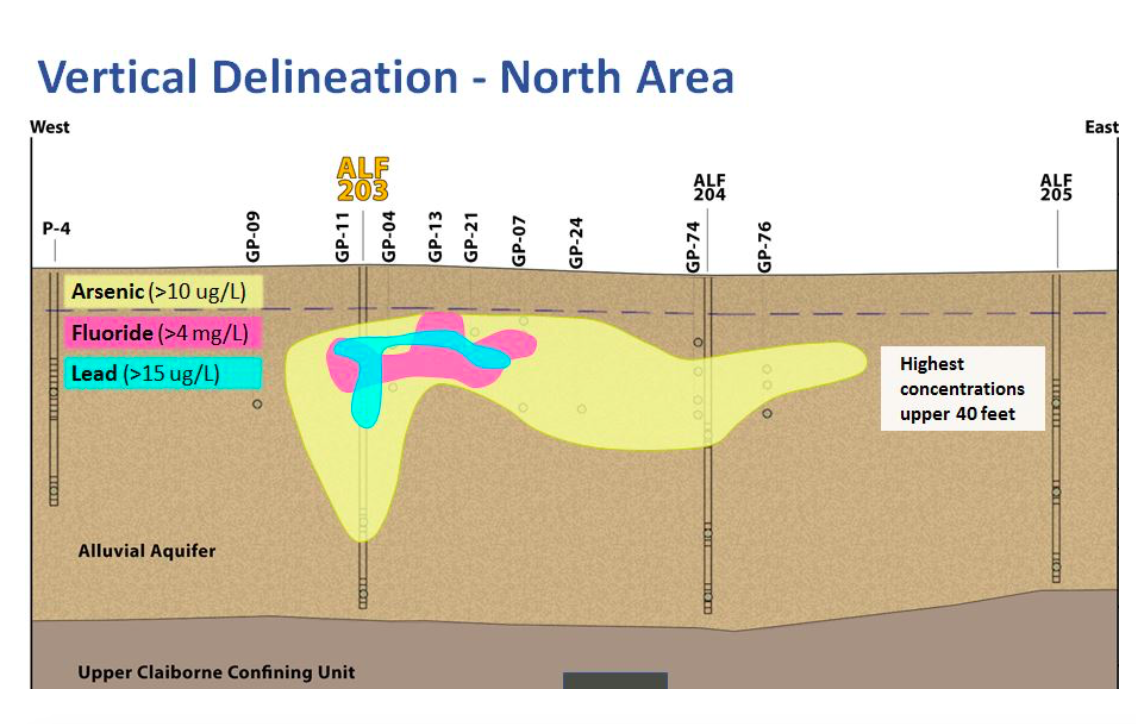 Tennessee Valley Authority
Tennessee Valley Authority
TVA workers install water quality monitoring wells near the Allen Fossil Plant.
Changes could be ahead for the way wells are permitted in Shelby County — changes intended, in part, to help protect the area’s drinking water.
The Shelby County Groundwater Control Board (SCGCB) has been working on updates to its permit process for months. The move to review the rules came after a controversy over some wells arose in 2016.
The board and the Shelby County Health Department approved five well permits for the Tennessee Valley Authority (TVA) in 2016. TVA hoped to pump 3.5 million gallons daily from the Memphis Sand Aquifer — the source of the area’s pristine drinking water — to cool a new energy plant here.
Protect Our Aquifer, a local advocacy group, and the local branch of the Sierra Club tried to appeal two permits issued by the board and the health department. The board denied the appeal. The groups filed a lawsuit on the matter but it was dismissed.
 Corey Owens/Greater Memphis Chamber
Corey Owens/Greater Memphis Chamber
All of it, though, raised public awareness about the wells, TVA’s plan, and the local permit process.
Public comment on the permitting process ended this week. Officials with the health department are now compiling those comments for review by the public and the members of the water control board. The board will vote on the new rules in the coming weeks.
Some of the major changes in the rules include new classifications for different types of wells (depending on how much a user intends to draw from them), siting guidelines for new wells, and limits on water use.
For example, one proposal would broaden a rule that said water pumped from only certain types of wells would be limited to “reasonable use” to include “any water well.”
Big changes could come to the way that large wells — like the ones TVA drilled — are permitted. Permits approved by the health department would be automatically appealed to the ground water board for a hearing.
Notice of those hearings would follow the same rules as many elected bodies. Notice of the hearing and information about the well to be reviewed would be published in newspapers, the Shelby County website, and it would be emailed to interested parties. The public would be invited to speak at the hearings.
Well permits would only be approved by the board if the applicant can prove that the local, public water supplier “is unable or unwilling to supply the amount of water required by the applicant.”
The applicant would also have to hire experts to prove that alternative sources of water aren’t suitable because of its chemical makeup or because there’s not enough of it.
Recently, the TVA decided to buy water from Memphis Light, Gas & Water instead of pumping water from its five wells. A coal ash pond about a half of a mile from those wells is leaking toxins into groundwater. Some fear running the wells would pull those contaminants into the area’s drinking water.
A proposed rule change says, “the proposed well will not accelerate or enhance the migration of a known source of contamination into the aquifer.”
 Tennessee Valley Authority
Tennessee Valley Authority
The depth and amount of the contamination, according to the TVA investigation.
 JB
JB 